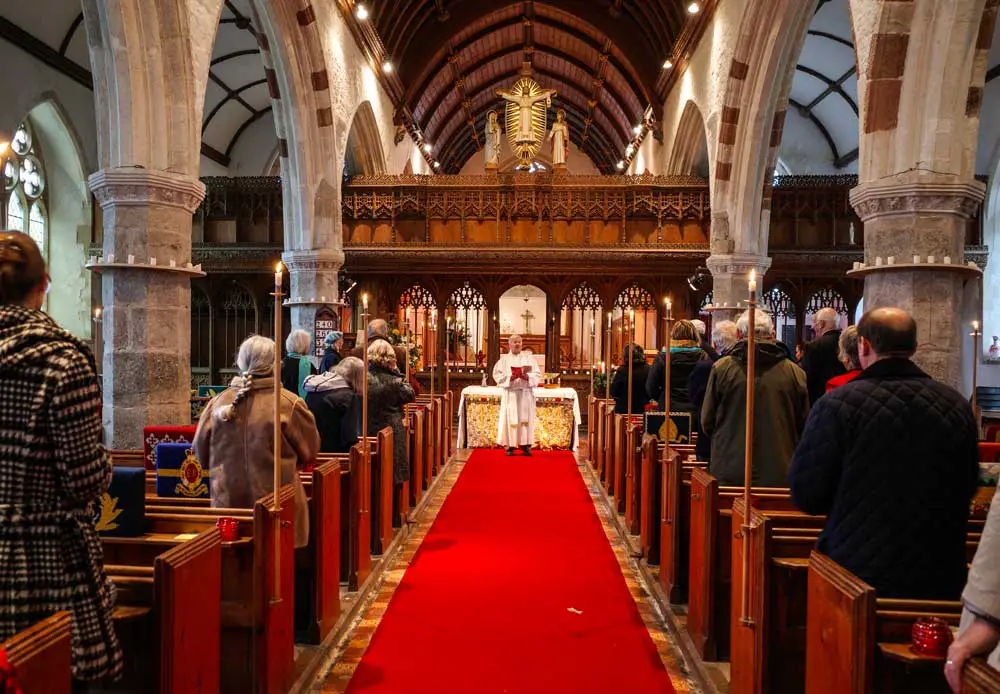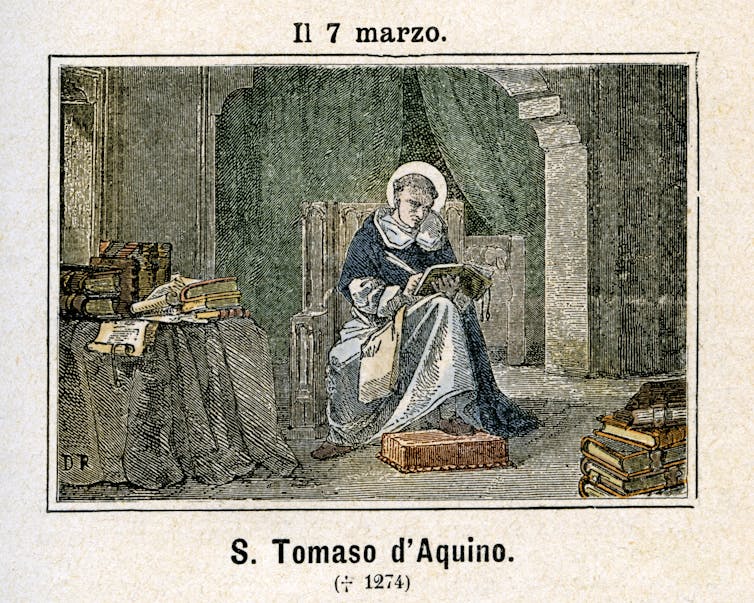
By Annie Selak
The Church of England is considering what language and pronouns should be used to refer to God.
The church’s General Synod has, however, clarified that it will not abolish or substantially revise any of the currently authorized liturgies. Nonetheless, this news made headlines and brought up questions of how religions refer to God. Is God male? What pronouns should be used to refer to God?
As a Catholic feminist theologian who runs a women’s center at a Catholic university, I understand the impact of the pronouns Christians use for God. Historically, Christian tradition has recognized many pronouns for God, including “he/him,” “she/her” and “they/them.” This is partly because God does not have a gender. Despite the diverse images used for God in Scripture and Christian tradition, male language and images predominate in contemporary Christian worship.
Many images for God
When we speak about God, we do so knowing that what we say is incomplete. All images for God reveal something about God. No image of God is literal or reveals everything about God.
For example, while Christians can refer to God as a king, they must also remember that God is not literally a king. Calling God a king expresses that God is powerful. However, it is not expressing factual accuracy about God’s gender or implying that God is human.
Referring to God with many titles, descriptions and images invites many of us to recognize the mystery of God. God is like all of these things but also more than all of these things.
Thomas Aquinas, an influential 13th-century Catholic theologian, asserted that individuals can talk about God in ways that are true but always inadequate. Aquinas explained that our language about God affirms something about God, yet God is always beyond that which we can express. We express truths about God in human terms and constructs, but since God is mystery, God is always beyond these categories.

Fototeca Gilardi/Getty Images
Scripture is filled with multiple images of God. In some of these images, God is depicted as a father or male. Jesus teaching his disciples to pray the “Our Father” prayer is perhaps the most well-known example of a male title for God.
In other parts of Scripture, God is female. The prophet Isaiah compares God to a nursing mother in the Book of Isaiah. A mother hen gathering her chicks is an analogy for God in the Gospel of Matthew. The Book of Wisdom, a book in the Catholic Bible, depicts wisdom personified as a woman. Wisdom 10:18-19 states: “She took them across the Red Sea and brought them through deep waters. Their enemies she overwhelmed.” This account presents God as female, leading Moses and the Israelites out of Egypt and into the Promised Land.
Depicting God as female in Scripture speaks to God’s tenderness as well as strength and power. For example, the prophet Hosea compares God with a bear robbed of her cubs, promising to “attack and rip open” those who break the covenant.
Elsewhere in Scripture, God has no gender. God appears to Moses in the burning bush in Exodus 3, defying all gender categories. The Book of 1 Kings presents a gentle image of a gender-neutral God. God asked the prophet Elijah to go to a mountain. While there, Elijah experienced a strong wind, an earthquake and fire, but God was not present in those. Instead, God was present in a gentle whisper. The creation stories of Genesis refer to God in the plural. These examples emphasize that God has no gender and is beyond any human categories.
The social impact of male pronouns
Pronouns, like “He/Him” in the Christian tradition, can limit one’s understanding of God. It can also make many individuals think that God is male.
It is not wrong to refer to God with male pronouns, but it can have negative social and theological consequences to refer to God with only male pronouns.
Feminist theologian Mary Daly famously stated, “If God is male, then the male is God.” In other words, referring to God only as the male gender has a significant social impact that can exalt one gender at the expense of others.
Referring to God only as male can also limit one’s theological imagination: Using many pronouns for God emphasizes that God is mystery, beyond all human categories.
The Church of England is not only responding to modern questions about gender, but also continuing a long tradition within Christianity of referring to God as male, female and beyond gender constructs.
![]()
Annie Selak is Associate Director of the Women’s Center, Georgetown University.





























DaleL says
Something which is real can be defined. It can be observed, measured. People from various backgrounds can agree on its basic nature. We might disagree on some aspects of a definition, but most people can agree on the size, shape, position, color, etc. Of course there are the flat earth adherents, but they are a distinct minority.
The fact that there are so many religions and so many interpretations of the nature of “God”, is an indication that “God” is fictitious. Debating whether “God” is male, female, or no gender at all, is rather like debating what size and kind of shoes Big Foot wears.
Fiction is inherently neither good or evil. As a result, a belief in “God” or an adherence to any particular religion is also not inherently good or evil. Most religious beliefs are rather harmless and provide a sense of belonging and purpose. Still, history is full of examples of wars and atrocities based on religion. For example, in 1900, about 20% of the population of Turkey was Christian. The Armenian genocide in WWI resulted in the murder of over a million Christians. Today, only about 1% of the population is Christian. Atheism is punishable by death in 13 countries.
HayRide says
you do realize religion is man-made, don’t you?
it only “provides a sense of belonging and purpose. ” for the lonely and weak
Neutral Ned says
The term “GOD” has always been misunderstood. If one believes in a higher entity, it should be recognized as ” The Creator “.